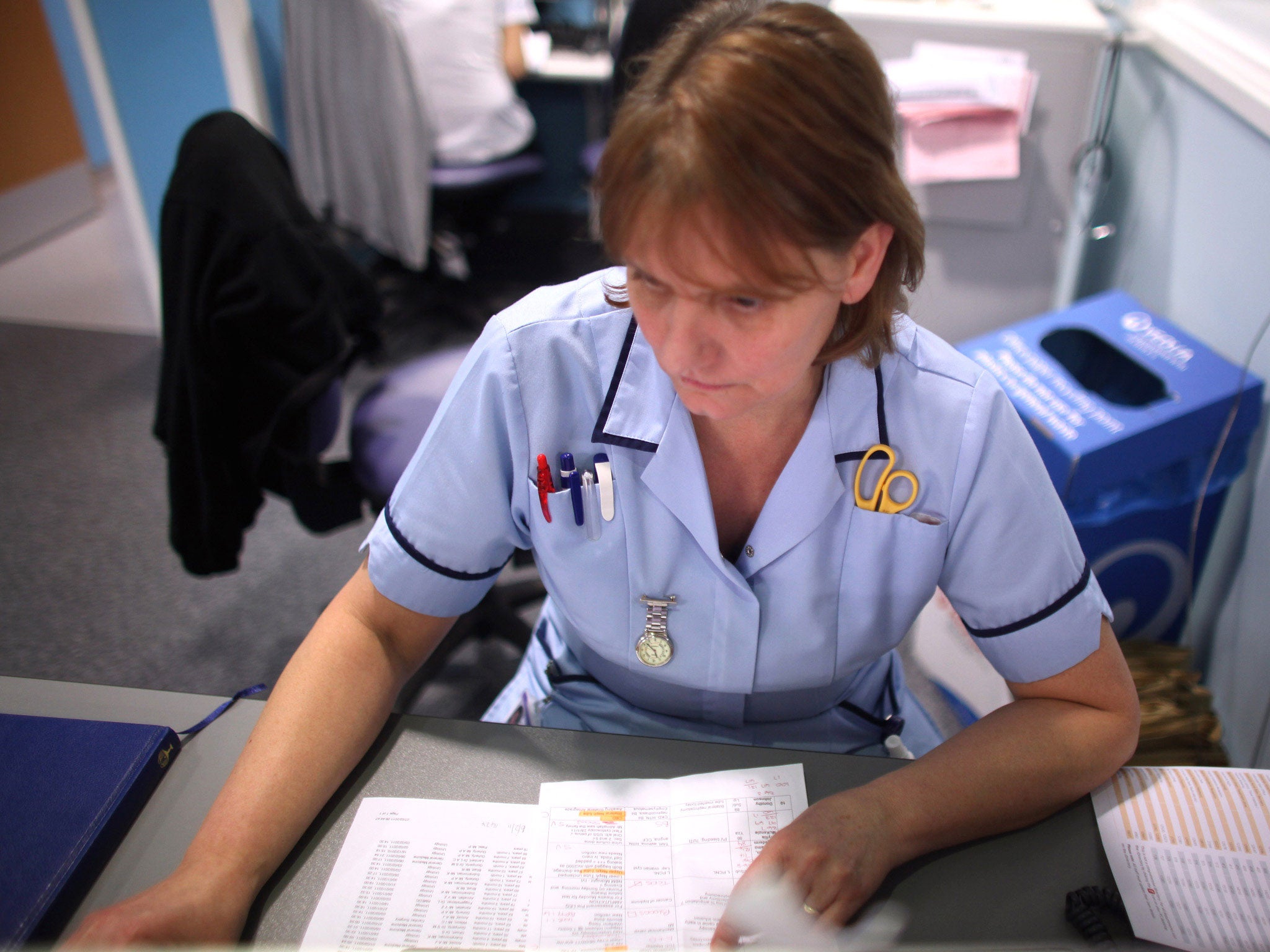Sharing patient data would open door to next-generation NHS using 'artificial intelligence', Government told
Study argues security challenges holding up access to health data for AI can be overcome, despite past controversies

Your support helps us to tell the story
From reproductive rights to climate change to Big Tech, The Independent is on the ground when the story is developing. Whether it's investigating the financials of Elon Musk's pro-Trump PAC or producing our latest documentary, 'The A Word', which shines a light on the American women fighting for reproductive rights, we know how important it is to parse out the facts from the messaging.
At such a critical moment in US history, we need reporters on the ground. Your donation allows us to keep sending journalists to speak to both sides of the story.
The Independent is trusted by Americans across the entire political spectrum. And unlike many other quality news outlets, we choose not to lock Americans out of our reporting and analysis with paywalls. We believe quality journalism should be available to everyone, paid for by those who can afford it.
Your support makes all the difference.Data from patients’ health records should be shared with private firms to improve care using artificial intelligence, the Government is told today.
A study sets out how Britain should become a world leader in AI, to deliver benefits ranging from smarter scheduling of operations to hiring on-demand self-driving cars.
Industry experts call for the secure sharing of anonymised data about people’s health and lifestyles – arguing they, as well as well as private technology companies, will benefit.
The NHS should use facts and figures from supermarkets, transport organisations and town planning to work out ways to encourage healthier lifestyles, the report says.
However, it also highlights how the NHS is failing to exploit AI through data tie-ups with the likes of Your.MD, which offers “immediate trustworthy healthcare advice” via a mobile phone app.
It quotes Matteo Berlucchi, the firm’s chief executive, who appealed for “access to reliable and consistent data sets of anonymised personal health records” to push forward the project.
“We have tried to approach the NHS to see if there was a way to access some of this data but we have struggled to even find the right person to talk to,” he said.
The report, entitled Growing the Artificial Intelligence Industry in the UK, argues the “security challenges” holding up access to health data for AI “can be overcome by agreements”.
However, the recommendation is likely to revive previous controversies over data-sharing of health records, which forced the Government into retreat.
Last year, ministers scrapped the care data plan to link GP records after an outcry over whether the public had been properly informed and given the chance to opt out.
The Department of Health then promised that any new record-sharing system would come with “a single and simple mechanism for individuals to opt out of their data being shared beyond their direct care”.
However, draft plans last month appeared to suggest that even patients who opt out could see their information shared across services covering up to five million people.
Meanwhile, in July, the Information Commissioner criticised an NHS hospital that failed to use an appropriate legal basis to share 1.6 million patient records with Google’s Deepmind AI firm.
The report makes 18 recommendations on how to make the UK a world leader, including boosting skills through an industry-funded masters and expanded expand support for businesses.
Other areas where AI is being used, but could be expanded, included:
* Banking – HSBC has created a chatbot, Olivia, who can assist customers 24 hours a day, 365 days a year with their enquiries.
* Education – A platform called Century is helping teachers to provide more personalised education programmes and receive feedback.
* Legal services – AI is helping lawyers to do legal searches and to draft the best standard documents.
* Travel – Companies are developing fully autonomous operating systems that diagnose potential problems for driverless cars and identify the most logical routes.
Karen Bradley, the Culture Secretary, said: “I want the UK to lead the way in artificial intelligence. It has the potential to improve our everyday lives – from healthcare to robots that perform dangerous tasks.”
Join our commenting forum
Join thought-provoking conversations, follow other Independent readers and see their replies
Comments